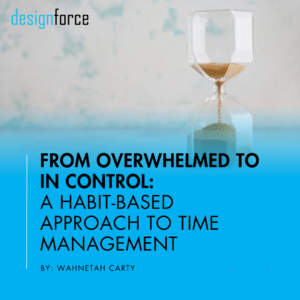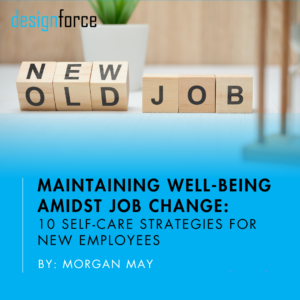I was a mechanical engineer for the first nine years of my career and I can vividly remember the overwhelming feelings I navigated during my first couple years on the job. While I’ll admit that some of the best learning comes from lived experiences and stumbling your way through, I wanted to share a couple things I wish someone had told me as I was just starting out. I hope this can help any junior engineer working in the MEP world (and beyond!) to set themselves up for success in their career.
#1 Learn When to Ask for Help
As a junior engineer, this scenario may sound very familiar to you: your project lead explains a task they would like you to tackle, for example, performing your first load calculation. You’ve done some training on how to do these at a high level but haven’t done one on your own quite yet. You head back to your desk and start out strong, but halfway through, you get stuck. Should you keep trying on your own for another few hours? Should you go ask your lead for help?
Striking the balance of struggling through a task and asking for help is tricky and there is no one right answer. The key here is putting some effort into trying to figure out the problem before going to your lead each time you get stuck. There is value to struggling through a difficult task because it forces you to really think critically, seek out resources, and research. However, there does come a time when your efforts start to become inefficient. This is when asking for help is the right move.
The great thing is, if you’ve spent a little time doing your homework, you can confidently go to your lead and frame the question you have and even provide some potential solutions you’ve come up with. Walking them through your line of thinking shows your lead that you have done your due diligence on trying to figure it out, and can allow them to more effectively walk you through the best approach.
#2 Practice Speaking Up
The first time I ever had to speak on a work call at my first job, we had to go around and say our name and our discipline. I felt my heart starting to race – my turn came and I said my name and introduced myself as an “electr….I mean mechanical engineer” and an awkward pause followed. Somehow, my nerves had caused me to mess up one of the most basic introductions ever.
Getting nervous before any kind of public speaking is completely normal and is something I am sure a lot of engineers can relate to. There are so many factors that play into whether we feel comfortable or empowered to speak up. Additionally, most of us don’t get taught this in school and the workplace is the first time we are confronted with it. The best advice I have ever received on this topic is just to practice, practice, practice.
Start out in smaller spaces where you feel safe and the “stakes” are lower. I started out by challenging myself to ask one question per lunch’n’learn meeting. Even if it was a question I actually knew the answer to, I would use it as an opportunity to just practice using my voice in a meeting. Silly as it sounds, it helped me gain a bit more confidence in speaking up.
Take advantage of meetings with smaller, internal teams where you can practice. Say yes to an opportunity to give a presentation or volunteer to answer a question during a call. No matter how good you become at public speaking, I can guarantee you will still get nervous. But the key to pushing through the (very normal) nerves is to get used to the practice of speaking up.
#3 Focus on Building your Internal Network
Networking is typically framed as making connections with people external to your company, but I find that the value of internal networking is often overlooked. Building relationships with people across your own organization can help you learn more about your colleagues’ career journeys, expose you to different parts of the business, and give you more people you can ask questions to and learn from.
Try setting up informal chats or having lunch with different people from your office to start building relationships. If your organization has different offices, think about sending a note to a counterpart in another office and introduce yourself. Sometimes the easiest way to make an internal connection is to ask a mentor or colleague to connect you with someone new.
I remember talking to a previous boss about some unique interests and skills I was hoping to develop, and he immediately connected me with someone in the company who he knew would be able to help. I was then able to create a great new relationship with someone who was able to help foster some of my current passions that serve me today. In my experience, having a robust internal network can only help you in your career and may come in handy in the future.
#4 Get Comfortable Saying “I don’t know”
My dad, an experienced engineer, gave me some great advice early in my career. He warned me that either during design or construction, someone may come to you with a decision that needs to be made and will want an answer on the spot. As an engineer just starting out, you may feel pressured to prove yourself and give an answer, even if you have no clue. He explained there is no shame in saying “I don’t know the answer to that, but I will find out and get back to you.” In my experience, people will always prefer an honest answer.
Whether you are in a high-pressure situation with a contractor, in a discussion with a peer on an assignment, or in a project meeting, there is no shame in saying you don’t know or don’t fully understand something. Use it as a tool to learn and absorb knowledge from others – it will always lead to some kind of valuable learning experience for you.
#5 Spend Time Onsite
During my first stint working at a construction site, one of the construction managers took me out to the mechanical room and pointed up at a fan coil unit. He said, “Look up. What is wrong with this installation?” I racked my brain and was at a loss. At a glance, it looked fine to me? He then pointed out the maze of piping that was installed directly underneath the unit. It then clicked to me – how was anyone supposed to access this unit and change a filter or access a valve? This would now involve scaffolding and rework to relocate this unit so that it was maintainable.
This was a valuable lesson for me. As an engineer designing construction drawings, sometimes it is hard to visualize the real-life implications of what you are designing and how it will be used. Spending time onsite gives you an appreciation of what the design elements you are putting into a Revit model actually look like, how much space they take up, and how they will be accessed. I would highly recommend any junior engineer take advantage of opportunities to go onsite and learn, even if it is just shadowing and following around a construction team member around for a day. People in the field can provide invaluable perspective on how you can design more effectively and will help you progress into a well-rounded engineer.
#6 Get to know what other disciplines do
As an electrical engineer, you might be working through some coordination issues and realize that the small transformer you originally had located in Room A needs to be relocated. Room B has plenty of space for equipment placement and access, so you think it’s a perfect solution. One week later, this comes up during a coordination call and the mechanical engineer is less than pleased, as this will require some changes on the HVAC approach for that room. You are taken by surprise as this didn’t seem like an issue that impacted mechanical.
As an engineer, you almost never work in a silo. You are constantly interacting with other disciplines to produce a coordinated, functional design. Having a high-level understanding of what other disciplines do and what matters to them can help you gain an appreciation for their world. It can help inform your design and allow you to understand when a change in your scope will impact someone else so that you can communicate properly and ensure coordination.
Being intentional about what you focus on early in your career can help tremendously as you start to establish yourself as an engineer. If you are ever looking for free professional resources such as career road-mapping, performance review preparation, or just a sounding board to turn to in order to talk through various challenges and decisions unique to the AEC industry, reach out to me at th@designforce.me!

Related Posts
Let's learn together.
Stay inspired and in the know on all things A|E|C.
Sign up for our monthly newsletter.










